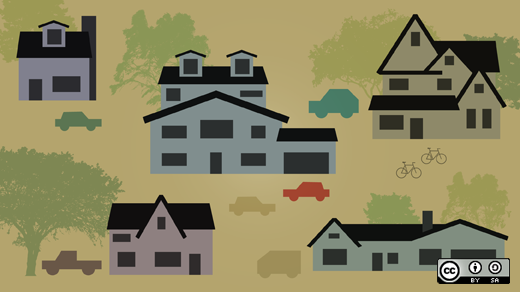Neighborland is a new ideation crowdsourcing startup that gives citizens a “fun and easy way for residents to suggest new businesses and services that they want in their neighborhood.”
Founded by Candy Chang, Tee Parham and Dan Parham, and funded by the Tulane Social Entrepreneurship program with support from the Rockefeller Foundation, it launched in alpha mode this June in New Orleans.
Co-founder Dan Parham shares his thoughts on the new venture.
What’s the story behind starting Neighborland?
Neighborland started as an off-line art project called ‘I Wish This Was‘ from one of our founders, Candy Chang. ‘I Wish This Was’ received great response from the residents of New Orleans and the press, and we realized there was potential for a new type of civic input tool to collect the same kind of conversation from the city’s residents. We took what we learned from ‘I Wish This Was’ and built a quick prototype of Neighborland in December.
In January, we applied for some grants, and Candy received an Urban Innovation Challenge Fellowship from Tulane University in February for Neighborland. The fellowship is funded by the Rockefeller Foundation. Candy spoke about “I Wish This Was” at TED in Long Beach in February on the TED-U stage, and announced that we were working on Neighborland.
We’ve been working on the platform this spring with our co-founder and Chief Engineer, Tee Parham. We just launched the alpha softly on June 1st. We will be doing a series of events in New Orleans this summer to promote the platform to all neighborhoods in the city. We are focused on accessibility through both analog and digital input from the residents of New Orleans.
We are currently looking for partners in New Orleans to help make some of the smart, feasible ideas on Neighborland a reality. We are also seeking angel investment, which will help us to roll out to other cities this year.
How is it different from other crowdsourcing tools?
We are 100% focused on making things happen. Our goal is to create a community, and empower them with information, tools and resources to effect real change in New Orleans. Our success metric is the number of new sustainable businesses that open here with Neighborland’s support.
Right now, we’re trying to facilitate a very specific civic conversation, so the design of the product is very different than other tools. We’ve worked closely with our community here in New Orleans to create a simple, fun, and intuitive design. The minimalism of the interface evokes the design of Candy’s public installations, and our upcoming street installations will amplify this connection.
Finally, our business model is different–we’re not charging cities to use the platform. We’re creating a new type of survey page that developers, property owners, and entrepreneurs can use to connect with neighborhood residents during the development process. We also hope to be able to sell marketing insights about neighborhoods as our community grows.
How do you plan to work with municipalities to leverage Neighborland?
We’ve thought a lot about how brands successfully engage with their audiences on Twitter. What if city leaders engaged with residents concerned about neighborhood development in a similar way? We are working closely with city government leaders in New Orleans to figure out the best methods for responding to input and providing resources, and will scale this out to other cities for our national launch (September 1st).
What have you learned so far?
We have a passionate and vocal community, and we listen to their feedback. We’re focusing on making it easier to discover interesting and popular ideas; displaying ideas on maps; combining similar ideas into trends; enabling messaging between supporters; and providing resources to help evolve ideas into reality. We posted some information and pictures from our first user research “hackathon” here.
Connect with Neighborland on Facebook or Twitter at @Neighborland.






Comments are closed.